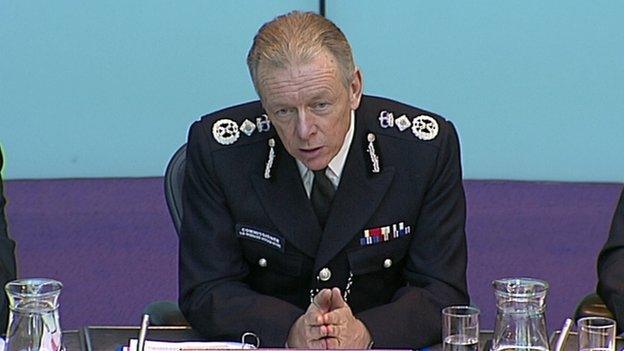Sir Bernard Hogan-Howe: Police cuts 'will put London at risk'
- Published
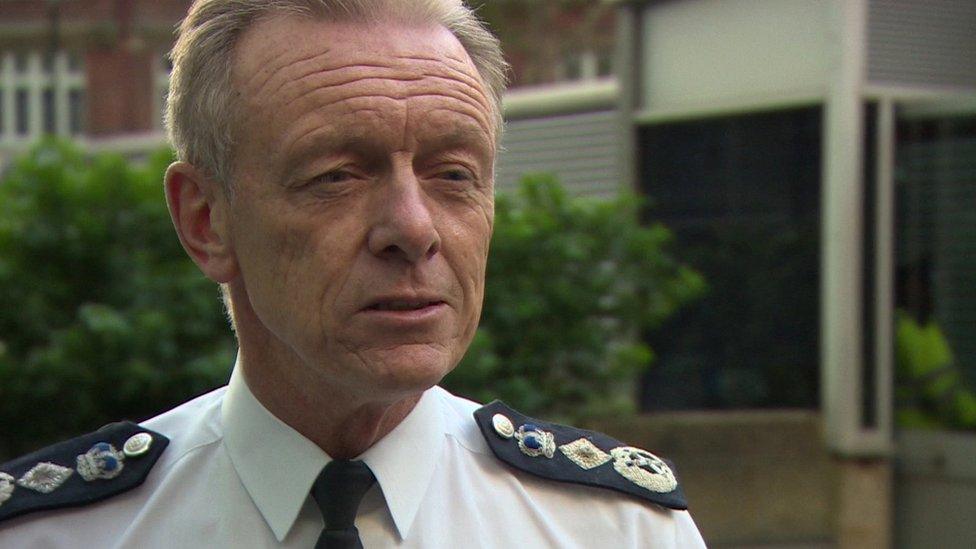
Sir Bernard Hogan-Howe said policing in London would become much more difficult if officer numbers are cut
London will be put at risk by proposed police cuts that would see up to 8,000 officers axed, the Metropolitan Police's commissioner has warned.
Sir Bernard Hogan-Howe said it would be "a real challenge to keep people safe" if front-line officers are reduced.
The Met believes it will face cuts of up to £1bn when a spending review looking at funding levels beyond 2015/16 is announced on 25 November.
The Home Office said forces would still have the resources to do their work.
London mayor Boris Johnson said policing in the capital would not see cuts "anything like the order" of those suggested by Britain's most senior officer.
He said while Mr Hogan-Howe's comments were "sensible", he did not think the cuts will be so severe.
'Less visibility'
Mike Penning, minister for policing, crime, criminal justice and victims, said no final decisions had been made.
However, he said how officers were deployed was what was important, "not how many of them there are in total."
But, Sir Bernard said as London was expected to grow by one million people over the next 10 to 15 years, cuts would make the police's job much more difficult.
"We are going to see less visibility, we will see less patrolling, and we'll be slower to respond because there will be fewer of us", he said.
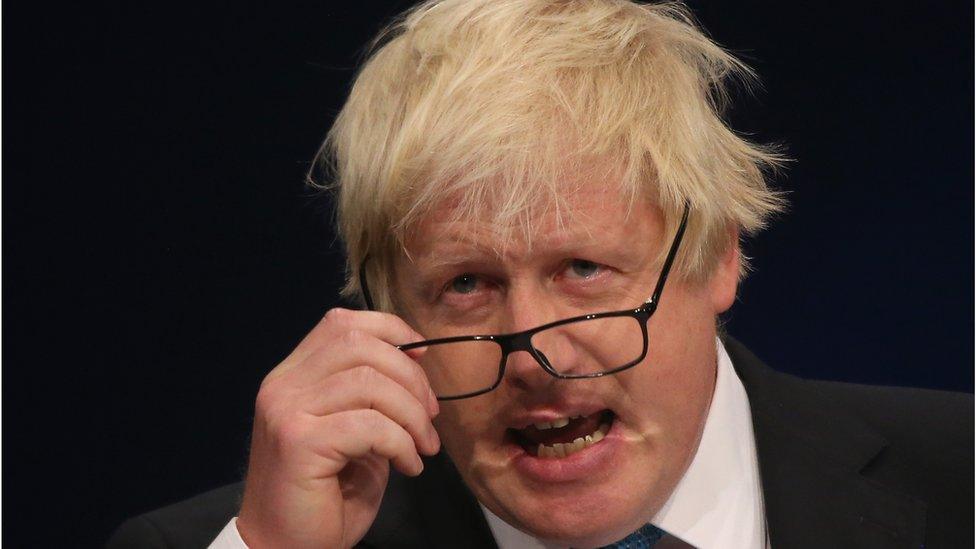
London mayor Boris Johnson said he did not think the cuts would be as severe as suggested
Mr Johnson said he had kept police numbers high during his eight-year tenure despite cuts across the country.
"It is up to us to make the case for London and that's what we are going to do in the course of the next few weeks.
"But the case has always been very strong, which is that London's population is growing," he added.
'Ill-conceived'
Stephen Greenhalgh, deputy mayor for policing and crime in London, said he was "extremely concerned" by the potential cuts that he said he would fight "tooth and nail".
He blamed the formula used to calculate how policing budgets are allocated across the country, describing it as "ill-conceived and poorly thought through".
However, some groups believe savings could be made by reducing frontline officers because new types of crime had meant policing had changed.
Andrew Haldenby, director of the think tank Reform, said forces required a better mix of employees with fewer "traditional police officers".
"We need more different kinds of police employees, for example doing cyber crime and domestic violence," he said.
- Published11 October 2015
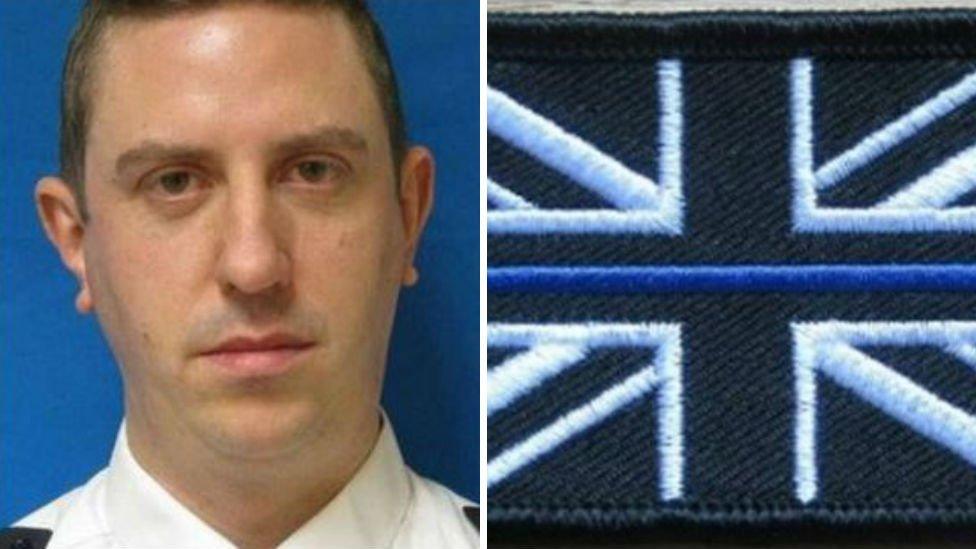
- Published2 June 2015
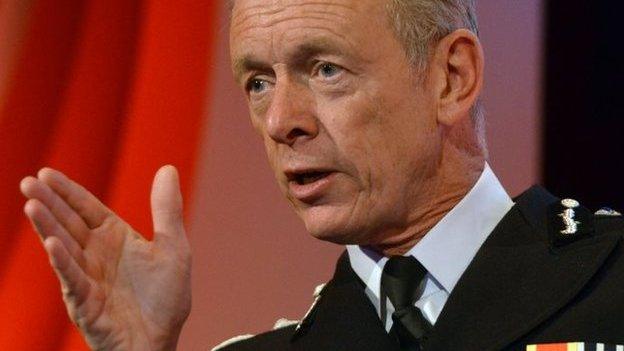
- Published5 June 2015
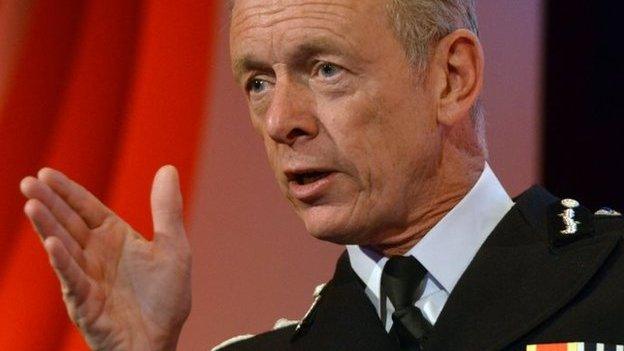
- Published25 September 2015
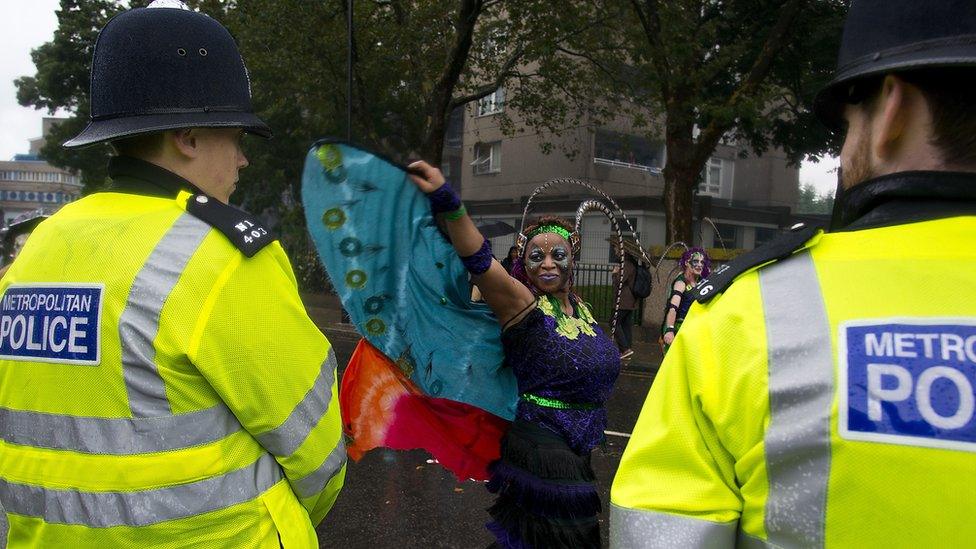
- Published3 June 2015
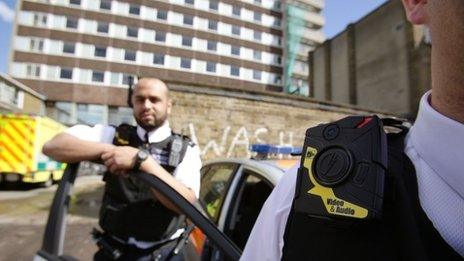
- Published30 January 2015
